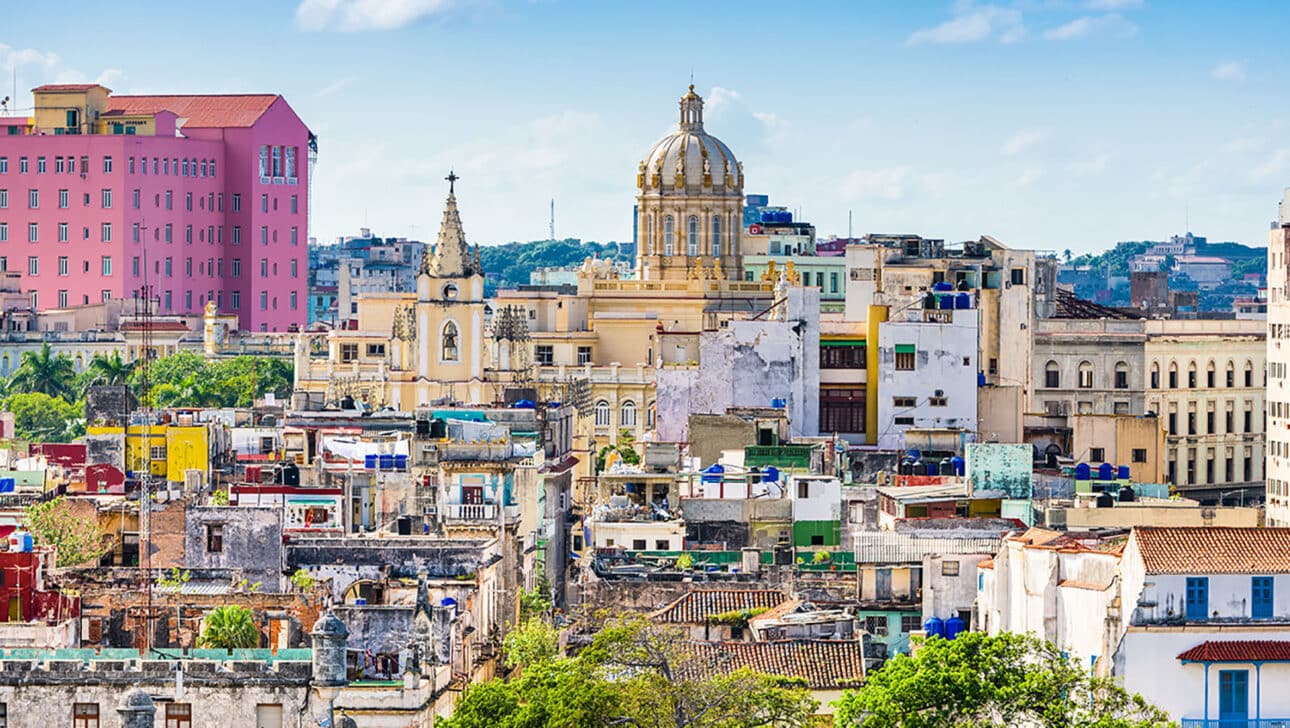Here’s the latest on Cuba travel restrictions, and what they mean for your travels. These FAQs include news about staying in hotels, as well as bringing back rum and cigars, which was announced on September 23, 2020.
What do the current Cuba travel restrictions mean?
In September 2020, the Trump administration announced a change in rules governing travel to Cuba. If you have plans for such a trip – or have been thinking about making them – you may naturally wonder what’s going on. Here’s a summary of the changes to the Cuban Assets Control Regulations and the Export Administration Regulations announced by the Office of Foreign Assets Control (OFAC, the section at the Department of the Treasury that regulates the trade and travel embargo to Cuba and which issues licenses for travel to Cuba) and the Commerce Department.
Can you summarize the changes?
- U.S. citizens may no longer stay in hotels owned by the Cuban government. U.S. citizens may stay in private B&B’s and casas particulares. There are more than 20,000 B&B’s and casas particulares around the island, including Havana. At Classic Journeys, we already know the owners of the best B&B’s as friends and have been choosing them as our accommodations for some time in order to make sure that the money our guests pay for the trip goes as fully and directly into the hands of local people. Many of these B&B’s are comparable to the standard and experience of the boutique hotels you enjoy in Europe and other parts of the world.
- U.S. citizens may no longer bring Cuban rum and cigars back to the U.S. Currently, these two high-profile Cuban products are the only two that are banned from returning to the U.S.
- U.S. citizens who previously visited Cuba under a “general license” to attend conferences, sporting events, meetings, and workshops may no longer use this sort of license. Now, written authorization is required from the Treasury Department via a “specific license.”
- All U.S. citizens may travel to Cuba at any time, pre-approved, under the ‘Support for the Cuban People’ (SFCP) license. This is the category of license that Classic Journeys uses for all of our tours.
How do the new regulations affect travel with Classic Journeys?
Classic Journeys was among the first companies to obtain a license to operate legal travel to Cuba for Americans, first under “People-to-People” and now under “Support for the Cuban People” licensing category. Among the requirements in this license, the program must support private enterprise in Cuba, which has been a key objective of our trips from the beginning. It also requires that our guests have a full-time program of meaningful two-way engagements with the Cuban people. That kind of rich and personal contact with Cubans has also been a hallmark of our trips, so the fact that we were already complying with that guideline has proven to be a bonus for Classic Journeys and our guests traveling with us.
So I can travel legally to Cuba with Classic Journeys?
Absolutely yes. Because we have responded vigorously and quickly to the evolving regulations, all of our trips are compliant with OFAC regulations. You can reserve space on set departures and private departures for travel from right now for Long Weekend in Havana and Havana, Cienfuegos & Trinidad.
Can I still fly to Cuba legally on commercial air flights?
Yes, flights to Havana and Abel Santamaria International Airport of Santa Clara are allowed.
Can I arrange a private edition of these trips?
Yes. We can create private or even custom departures for you, your family, or your group based on any of our existing programs. Because they are built on the framework of “Support for the Cuban People” regulations, your trip will be fully compliant and legal.
How do the regulations affect cruise travel to Cuba?
The changes end travel to Cuba by U.S.-flagged cruise ships or foreign-flagged cruise ships departing from the U.S. If you have paid money toward a deposit or final payment for cruise travel to Cuba, you should contact your cruise company for a refund.
Can I purchase travel insurance for Cuba travel?
Yes. When you make your application, you will be asked about the kind of trip you are taking. By selecting the “Support for the Cuban People” option, you will be able to purchase a policy.
What about private aircraft and boats; can they travel legally to Cuba?
The authorization for private vessels and private aircraft (such as private fishing boats and private sailboats, and corporate or private jets) is revoked. So, they are not legal for travel to Cuba.
How does my traveling to Cuba affect the Cuban people?
We’ve made so many wonderful friends in Cuba and have seen the lives of the Cuban people change for the better over recent years. With less travel to Cuba over the past few years, it causes concern about what it will mean to their prosperity and general welfare. The Cubans have been through so many hardships, yet welcome guests with grace, exhibiting warm solidarity in their families and communities.
Regulations cap remittances – the money that can be sent to Cubans from friends and family members in the U.S. – at $1,000 per person every three months. In a country where the median monthly salary is just $32, you can only imagine how a reduction in remittance income impacts everyday life. In addition, travel had become a major source of income for Cubans, so any reduction in that resource echoes throughout the country, affecting the people who can least afford it and whom we and our government want to help.
We choose guarded optimism.
We are approaching travel to Cuba as we always have – with care, enthusiasm, and pride in the fact that legal travel for Americans to Cuba has changed the lives of our American guests and the everyday local Cubans they’ve met, in overwhelmingly positive ways. You can still travel to Cuba legally with Classic Journeys. We like to think of this way of travel as an informal version of “Voice of America” with boots on the ground…yours in fact, as you communicate a positive story of the American people to local Cuban people. We urge you to hold fast to your plans. And if you’ve been hesitating to plan a Cuba trip, you know now that you can, and we encourage you to do so now.






